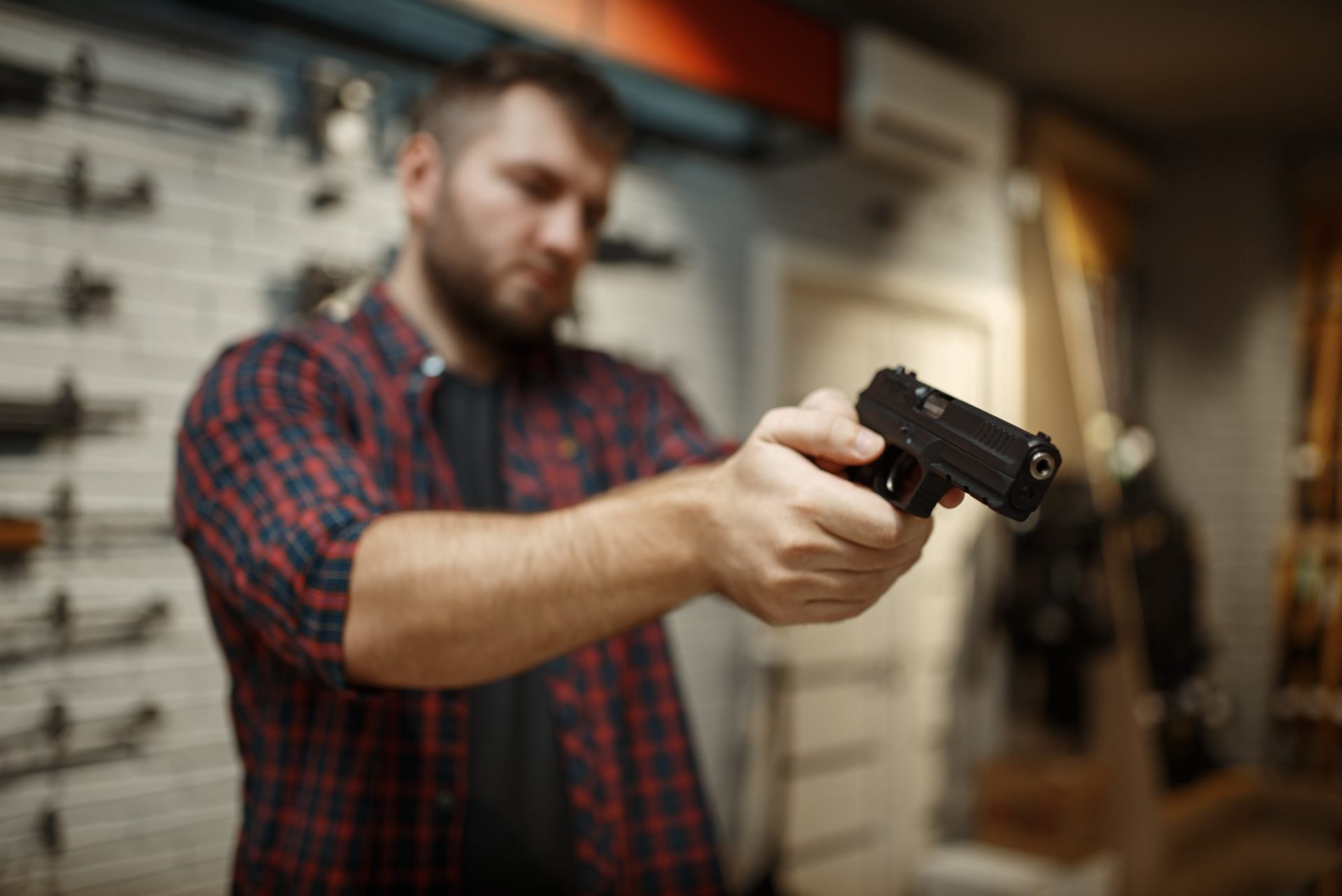 Lawyers in College Station and Waco representing cases across Texas
Lawyers in College Station and Waco representing cases across Texas Lawyers in College Station and Waco representing cases across Texas
Lawyers in College Station and Waco representing cases across Texas Lawyers in College Station and Waco representing cases across Texas
Lawyers in College Station and Waco representing cases across Texas
Many Texans own guns for hunting, self-defense, and sport. Unfortunately, a felony conviction can significantly impact your rights, including your right to bear arms, even after you’ve served your time. But does this mean that you will never be able to possess a gun if you are a felon? Texas has unique laws regarding gun ownership by felons. A Texas criminal defense attorney can explain how they compare to federal laws and what impact that can have on your right to possess a weapon.
The Texas Penal Code, Sec. 46.04, describes situations that constitute an unlawful possession of a firearm. This code outlines the restrictions on gun possession for people with felony convictions. Under these state laws, a convicted felon can have a gun as long as these two statements are true:
The difference between federal and state law when it comes to gun ownership by felons can lead to some confusion. Under federal law, all convicted felons are permanently prohibited from owning firearms.

This means that while Texas law allows you to own a gun after a felony conviction if you meet specific criteria, you could still technically be arrested and charged with a federal crime. However, this is unlikely because the current federal policy is to defer to state law in cases where state and federal laws differ.
Five years after their release from prison or the completion of their sentence, felons are allowed to possess a firearm at their home for the purpose of self-protection. The law does not allow felons to possess firearms at any other location. Those convicted of a felony cannot open carry a gun or apply for a concealed carry permit because it would violate state law.
Under Texas law, antique firearms are defined as firearms manufactured before 1899 or modern replicas of firearms manufactured before that date that do not use rim fire or center fire ammunition. Federal law also has a similar definition. Under this description, most muzzleloaders and black powder guns would be considered antique firearms.

Due to their unique characteristics, these antique weapons are excluded from the definition of firearms under Texas state and federal law. This means that a felon can own an antique firearm without prohibition. However, it is essential to consult an expert to be sure that your gun qualifies as an antique, so you do not face any surprise charges.
As noted above, Texas law does allow convicted felons to own firearms in very limited circumstances. But if you have been convicted of a felony and you are considering gun ownership in Texas after your five-year anniversary of completing your sentence has passed, you should be aware of federal law and carefully weigh whether the risks of a potential federal charge are worthwhile in your situation.
In addition to prohibiting all felons from owning guns, federal law also makes it illegal for the following individuals to possess firearms:
Texas takes its firearm laws very seriously. The charge for illegal possession of a firearm by a convicted felon is a third degree felony. The sentencing for this charge can include up to ten years in prison and a maximum fine of $10,000.

Your charges could even be upgraded to a second degree felony if you have a prior conviction for a felony other than a state felony. With a second degree felony conviction, the penalties could increase to 20 years in prison and up to a $10,000 fine. If you are charged with possessing a weapon as a felon, the assistance of a skilled criminal defense attorney can be critical to obtaining the best possible outcome in your case.
If you are facing a felony charge in Texas, it is crucial to understand that one of the consequences of a conviction is a loss of your gun ownership rights for a minimum of five years. Even after five years have passed following the completion of your sentence, your gun rights are highly limited, and you may still be putting yourself at risk of federal charges by possessing a gun. An experienced criminal defense attorney can help you fight back against your felony charges and protect your right to bear arms and other important rights you could lose upon conviction.
If you’ve already been charged with a felony and have questions about owning a gun or are seeking a pardon or another remedy to get your gun rights reinstated, our helpful lawyers can address your concerns. Contact our office today to schedule a consultation with a knowledgeable criminal defense lawyer.